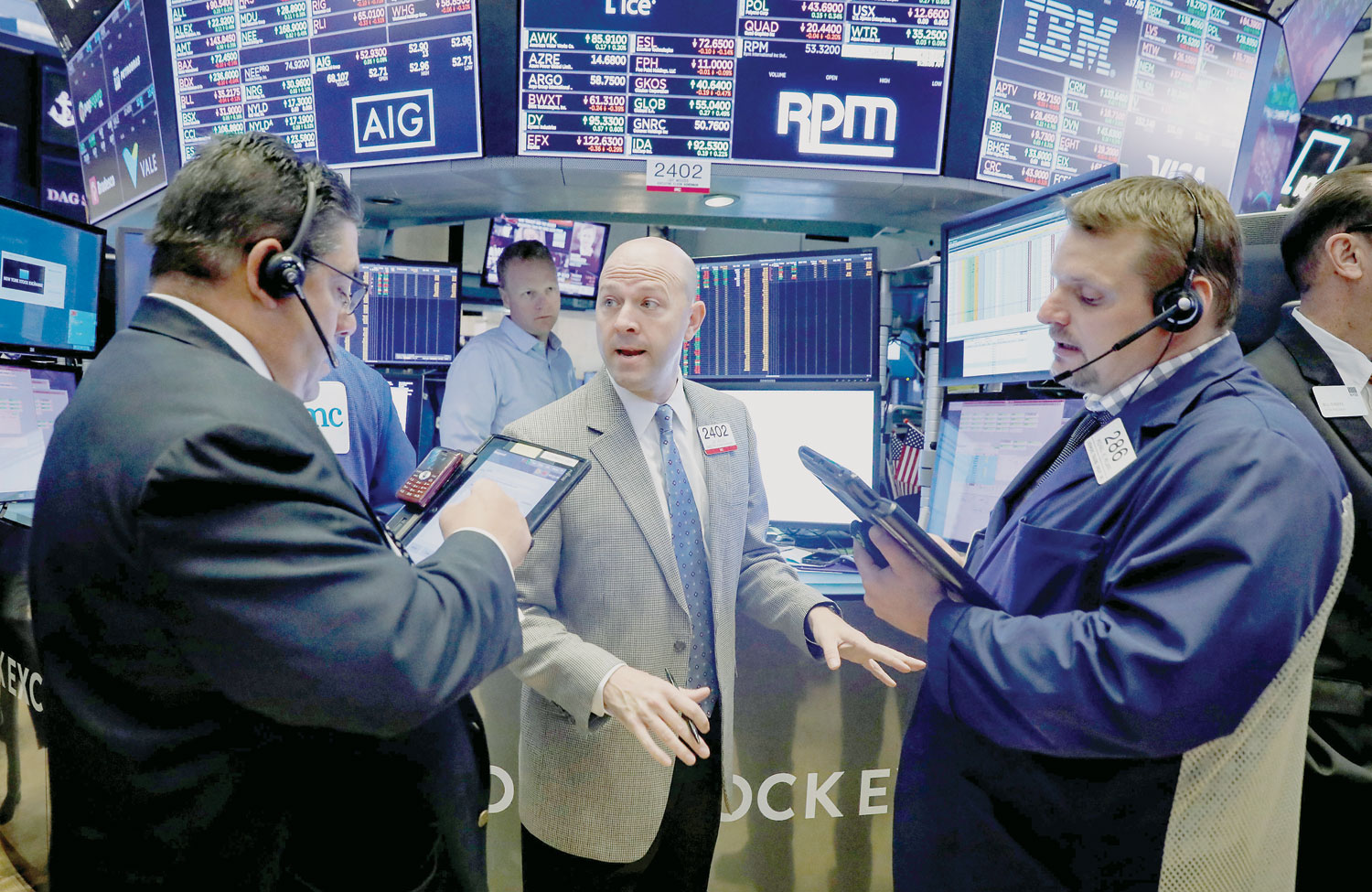

Investors have sharply increased their use of hedging strategies, signalling concerns that the intensifying trade battle between the United States and China might hit economies from Germany to South Korea. Money managers say that mounting barriers to trade between the United States and trading partners — Washington’s latest proposal for tariffs on $675 billion of Chinese goods is expected to elicit a response from Beijing — is prompting them to look for ways to protect profits in the event equity markets take a dive after years of growth.
That includes bets against declines in equity indexes and currencies as well as dividends and bonds.
“Only now have trade war concerns grabbed the spotlight for investors after bubbling away in the background for most of this year, prompting the rush for such hedging trades,” said Gerard Fitzpatrick, London-based chief investment officer for Europe Middle East and Africa at Russell Investments, which has nearly $300 billion of assets under management.
Trade isn’t the only issue weighing on investors’ minds. European growth has lost steam, oil prices are near $80 a barrel while the US, European and many emerging central banks are tightening monetary policy.
And politics could exacerbate any downturn, with Germany’s coalition in uproar over migration, and Italy’s new government flirting with a big-spending, possibly eurosceptic, agenda.
Hedging strategies also carry risk, however, namely that an anticipated market fall does not materialise.
Despite rising concerns among investors, the world economy is on a strong footing, with the global economy expected to grow 3.9 percent this year and next, according to the IMF.
While many investors are reducing their exposure to equities, most remain reluctant to completely move away from stocks. As a result, demand has risen for investment positions aimed at offsetting potential losses, according to money managers, market indicators and data.
That includes trades such as “put” options on certain indexes — allowing them to sell at a preset price if the index falls below a certain level in exchange for paying a premium — or short selling the bonds of highly indebted companies.
Short selling is when hedge funds and other investors borrow securities and sell them, betting the price will fall so they can buy them back later at a lower price for return to the lender.
Investors also appear to be seeking more options market protection against currency losses, especially on trade-sensitive currencies such as the Australian dollar or the Chinese yuan, via purchasing put options on these currencies in the $5.1 trillion a day foreign exchange markets.
“Some of these trades are an extension to what we have been seeing from earlier this year but there is no doubt that there is increased nervousness now reflected in markets,” said Eugene Philalithis, a portfolio manager at Fidelity International, which manages $2.4 trillion assets under management globally.
Shifts in the costs of derivatives indicate hedging demand has picked up since trade concerns intensified.
For instance, the cost of hedging against falls in Germany’s DAX index, highly exposed to exports to the United States and China, has increased sharply in the past week, according to Mathilde Richardot, a derivatives strategist at BNP Paribas based in London.
The Euro Stoxx 50 Volatility Index skew — a measure that derivatives markets look at to gauge demand for protection against volatility spikes — hit an all-time high as investors bought protection against sharp drops in equity prices for July and August. Similar moves were seen in US stocks.
Some market specialists say out-of-the-money put options are increasingly popular; they are typically cheaper and provide protection in the event of larger price drops.
Investors have also purchased options that hedge against a drop of 10 per cent or more in US indexes, according to UBS strategists. — Reuters
Saikat Chatterjee, Helen Reid
Oman Observer is now on the WhatsApp channel. Click here



